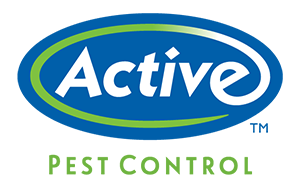Springtime in Georgia! Warm weather, sunshine, and… swarms of insects. The warmth and humidity in spring in Georgia draws many species of insects out of their winter habitats to feed and breed. 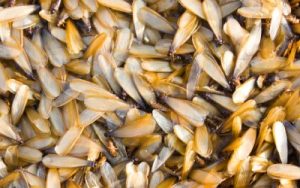 Many of these insects are just a nuisance but some of them can be dangerous to people or harmful to property. Learn which insects to watch out for, what you can do to protect your home, and how Active Pest Control can help if these precautions aren’t enough.
Many of these insects are just a nuisance but some of them can be dangerous to people or harmful to property. Learn which insects to watch out for, what you can do to protect your home, and how Active Pest Control can help if these precautions aren’t enough.
What Insects Swarm in the Spring?
Many bugs are known to swarm in spring but these are some of the most common or problematic swarming bugs in Georgia:
Bees: If bees are swarming on your property, they’re likely seeking food and shelter. Watch for the construction of bees’ nests in trees or on the eaves of your home. Carpenter bees can be especially concerning. They’re large, solitary bees that are often seen hovering near wooden structures in spring. They are important pollinators but can cause damage to wooden structures. They drill holes in wood to make their nests, which is how they get their name.
Termites: Termites begin swarming in the early spring months to establish new colonies. When termites are mating, you’ll typically find wings on the ground because termites shed their wings when they mate. If mating is happening on your property, then you are at risk of a termite infestation if you don’t already have one. Winged ants appear in late spring for the same reason as termites – to breed. They look similar to termites but don’t pose the threat to your property that wood-eating termites do.
Wasps: In the warmer months, the queen will come out of hibernation and begin looking for food. If you see wasps flying low to the ground in your yard, they are likely looking for grubs, larvae, or insects for the queen or her offspring.
Ladybugs: Ladybugs are a type of beetle that is often seen in large numbers in spring. They are beneficial insects that help control aphids and other garden pests.
Lovebugs: Lovebugs are a type of fly known for their distinctive mating swarms. They are typically found in the southeastern US, including Georgia.
Moths: Several species of moths, including the white-lined sphinx moth, are known to swarm in Georgia in the springtime.
Stinkbugs: Stinkbugs are common in Georgia and can be seen swarming in spring. While they are not harmful to humans, they can be a nuisance in large numbers.
How to Keep Swarming Insects Away
Take care with food and drink outside
When the weather heats up, so do our grills! Bees and especially wasps are attracted to protein-rich foods like the meat you or your neighbors will be cooking. They’re also attracted to sugary drinks. To keep bees and wasps from making an uninvited appearance at your picnic or BBQ, be sure to seal up leftovers promptly and keep any sugary drinks sealed or covered.
Keep your yard clean
To keep insects away, you’ll want to keep your yard clear of any kind of debris that could be a habitat for insects, including leaves, sticks and any fruit that may fall from fruit trees. Keeping your lawn mowed short can also help. Stack firewood, ideally off the ground, away from buildings, and covered by a tarp.
Stop water from pooling
Many different types of pests are attracted to water, either for breeding or for drinking. There are many items in our yards that can easily fill with water given how stormy spring in Georgia can be. Whether it’s a birdbath, an empty bucket, a flower pot or a trash can lid, try to prevent water from accumulating in any objects on your property.
Expert Pest Control for Georgia
At Active Pest Control we provide comprehensive pest control services to help keep insects away from your home in the spring and all year round. If you’re not able to enjoy your outdoor space because of swarming insects, we can help. We’ve been exterminating pests in Georgia for over 45 years. Contact us today for your free quote.

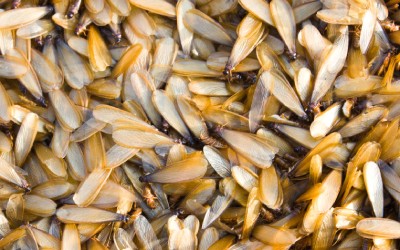
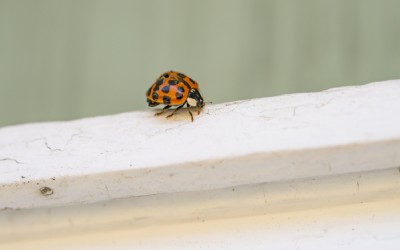
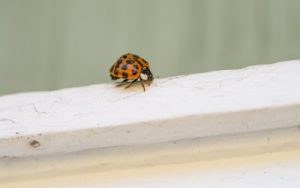
 Spring and summer in Georgia come with a lot to be excited about. However, the warm weather and sunshine following rainfall lead to all kinds of pest problems in our region. It’s important to be able to stop pests from finding food sources, shelter, and breeding grounds in your backyard, because without any effort put into pest prevention, your background will be overrun with pests for most of the year. If you’re wondering how you can pest-proof your backyard, read on for advice from our expert exterminators at Active Pest Control!
Spring and summer in Georgia come with a lot to be excited about. However, the warm weather and sunshine following rainfall lead to all kinds of pest problems in our region. It’s important to be able to stop pests from finding food sources, shelter, and breeding grounds in your backyard, because without any effort put into pest prevention, your background will be overrun with pests for most of the year. If you’re wondering how you can pest-proof your backyard, read on for advice from our expert exterminators at Active Pest Control!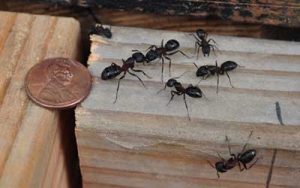 Have you noticed that pests start to get worse here in Atlanta as spring temperatures warm up? Wasps and bees begin to buzz around, winged insects crawl on your exterior walls, and you start to notice the dreaded ants crawling along your floorboards. Springtime is pest time nationwide. This time of the year is when many pests that were less active in the winter months begin to come out of dormancy. The reason why pest problems become so common in the spring, however, is because many of the pests were already lying in wait in the winter—right inside your home.
Have you noticed that pests start to get worse here in Atlanta as spring temperatures warm up? Wasps and bees begin to buzz around, winged insects crawl on your exterior walls, and you start to notice the dreaded ants crawling along your floorboards. Springtime is pest time nationwide. This time of the year is when many pests that were less active in the winter months begin to come out of dormancy. The reason why pest problems become so common in the spring, however, is because many of the pests were already lying in wait in the winter—right inside your home.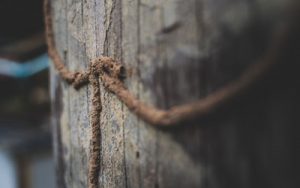 Termites are often only discovered when the damage starts to appear, making them one of the most dangerous pest problems. In order to avoid the destruction associated with termite activity, it’s important to recognize the early signs of termites in your home. With termites at peak activity in the spring and summer, now is the time to ensure you are protected against an infestation! The termite experts at Active Pest Control are here to share their knowledge on the top signs of termites they see in Georgia homes year-round.
Termites are often only discovered when the damage starts to appear, making them one of the most dangerous pest problems. In order to avoid the destruction associated with termite activity, it’s important to recognize the early signs of termites in your home. With termites at peak activity in the spring and summer, now is the time to ensure you are protected against an infestation! The termite experts at Active Pest Control are here to share their knowledge on the top signs of termites they see in Georgia homes year-round.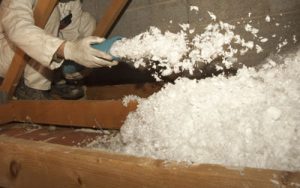 If you’re looking to install insulation in your home, you’ve likely heard about TAP® Insulation. This popular home insulation method has a number of benefits and is an increasingly common installation for homes in the Atlanta GA area. In addition to providing great insulation and energy efficiency, it is prized for its pest control properties. Infused with borate, this pest resistant insulation works to ward off insects, wildlife, and other pest problems. The team at Active Pest Control is here to share expert information on why TAP is the superior home insulation product available to homeowners today.
If you’re looking to install insulation in your home, you’ve likely heard about TAP® Insulation. This popular home insulation method has a number of benefits and is an increasingly common installation for homes in the Atlanta GA area. In addition to providing great insulation and energy efficiency, it is prized for its pest control properties. Infused with borate, this pest resistant insulation works to ward off insects, wildlife, and other pest problems. The team at Active Pest Control is here to share expert information on why TAP is the superior home insulation product available to homeowners today.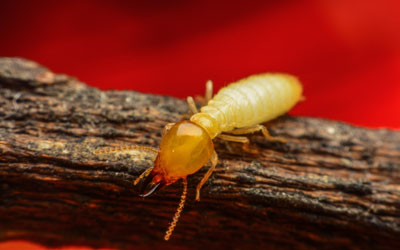 “Termite season” is, unfortunately, all year long here in Atlanta GA. Many assume that termites go dormant in the fall and winter like some other types of pests, but that’s simply not the case. Termites swarm in the spring, but will still dwell in and infest homes throughout the colder months of the year. They are less likely to be seen, especially since they may tunnel further underground to escape dropping temperatures outside. The bottom line is that termites are able to damage your home 24/7, 365 days a year. This makes it all the more important to know how to look for signs of termites in your property, even in the fall and winter months.
“Termite season” is, unfortunately, all year long here in Atlanta GA. Many assume that termites go dormant in the fall and winter like some other types of pests, but that’s simply not the case. Termites swarm in the spring, but will still dwell in and infest homes throughout the colder months of the year. They are less likely to be seen, especially since they may tunnel further underground to escape dropping temperatures outside. The bottom line is that termites are able to damage your home 24/7, 365 days a year. This makes it all the more important to know how to look for signs of termites in your property, even in the fall and winter months.